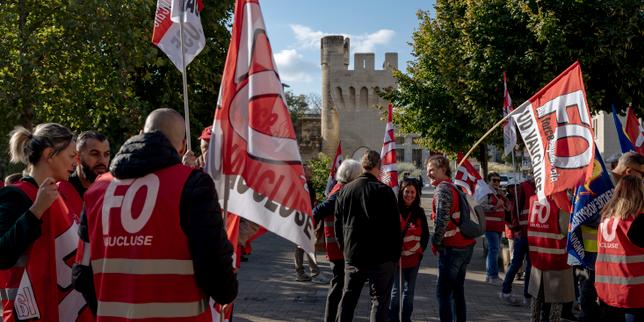Nationwide Strike in France on October 2: Unions Mobilize Amid Budget Discussions
France faces a significant national strike on October 2, driven by union discontent with governmental budget plans.
- • Nationwide protests and strikes occurred across various sectors
- • 27% teacher strike participation reported
- • Union leaders critiqued government budget proposals
- • Prime Minister engaged with political leaders amid union pressures
Key details
On October 2, France witnessed a significant nationwide strike affecting various sectors including education, public transport, and healthcare, in response to ongoing dissatisfaction with government policies and budget proposals. Prime Minister Sébastien Lecornu met with political leaders to discuss the 2026 budget, amidst threats of censure and ongoing pressure from union representatives.
Approximately 27% of teachers participated in the strike, with protests organized in multiple cities across the country. Key sectors like the French national railway company (SNCF) and the public transport authority (RATP) also joined the movement, indicating widespread discontent among workers. The inter-union group, which coordinated the strike, is demanding attention to current economic issues such as purchasing power and workplace conditions, highlighting the lack of sufficient responses from the government.
The context for the strike is rooted in past grievances, including a previous strike on September 18, and ongoing frustrations regarding the government's handling of economic challenges. Michel Picon, representing small business owners, criticized the Medef (the French business federation) for its inadequate support for smaller enterprises, stating that these businesses have been 'suffocated' by competition from larger corporations.
During the strike, Prime Minister Lecornu's discussions included assurances to union leaders about incorporating measures to improve women's pensions in the social security budget. However, leaders from unions like the CFDT expressed dissatisfaction, pointing to the government's failure to address pressing concerns such as inflation and tax policies.
As the unions prepared for future actions, Sophie Binet, leader of the CFDT, emphasized the need for a clear governmental direction regarding economic policies, especially in light of significant union calls for the repeal of the controversial 2023 retirement reform. The inter-union group's next meeting will focus on strategizing their response based on the outcomes of Lecornu's proposals, indicating that the strike is likely a precursor to further mobilization if workers' demands are not met.
This article was translated and synthesized from French sources, providing English-speaking readers with local perspectives.
Source articles (3)
Source comparison
Latest news
France Returns the Djidji Ayôkwé Talking Drum to Côte d'Ivoire After Over a Century
Record 37 Days of Rain Triggers Ongoing Severe Flooding in Western France
Political Divisions and Social Tensions Intensify Following Quentin Deranque’s Death in Lyon
French Economy Minister Calls for Full Insurance Industry Mobilization Amid Devastating Storm Floods
France Boosts Social and Solidarity Economy with New Tools and Potential Tax Reforms in 2026
Saint-Nazaire Mayor Condemns Vandalism of Two Political Offices as Attack on Democracy
The top news stories in France
Delivered straight to your inbox each morning.


